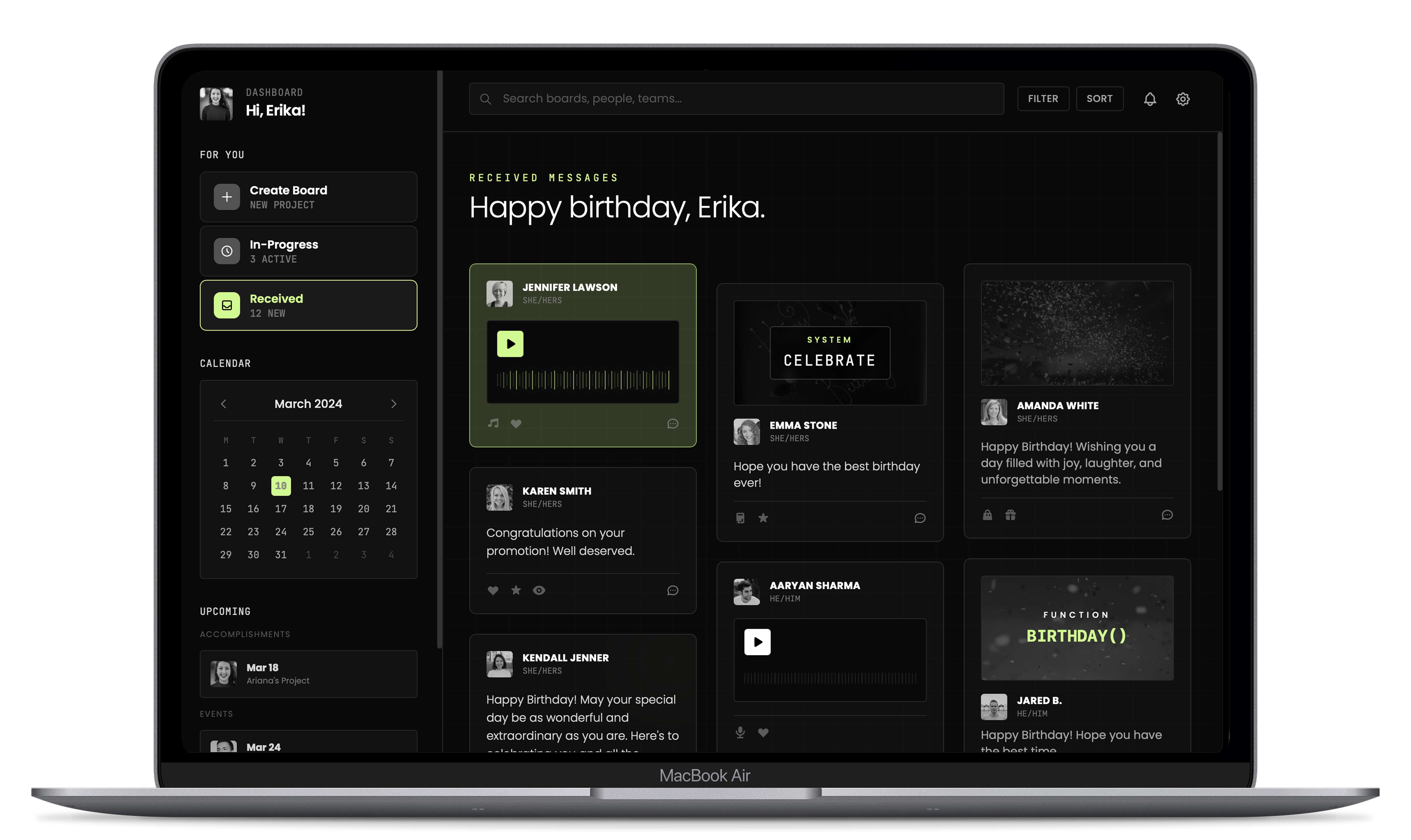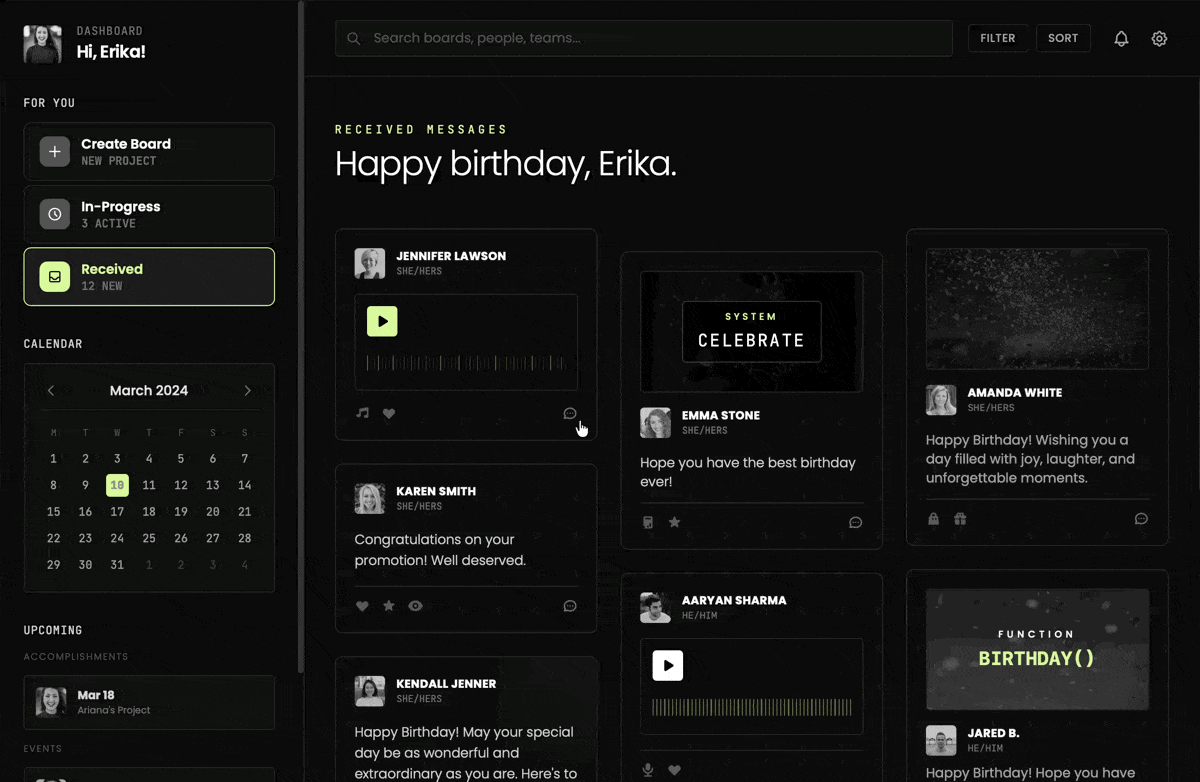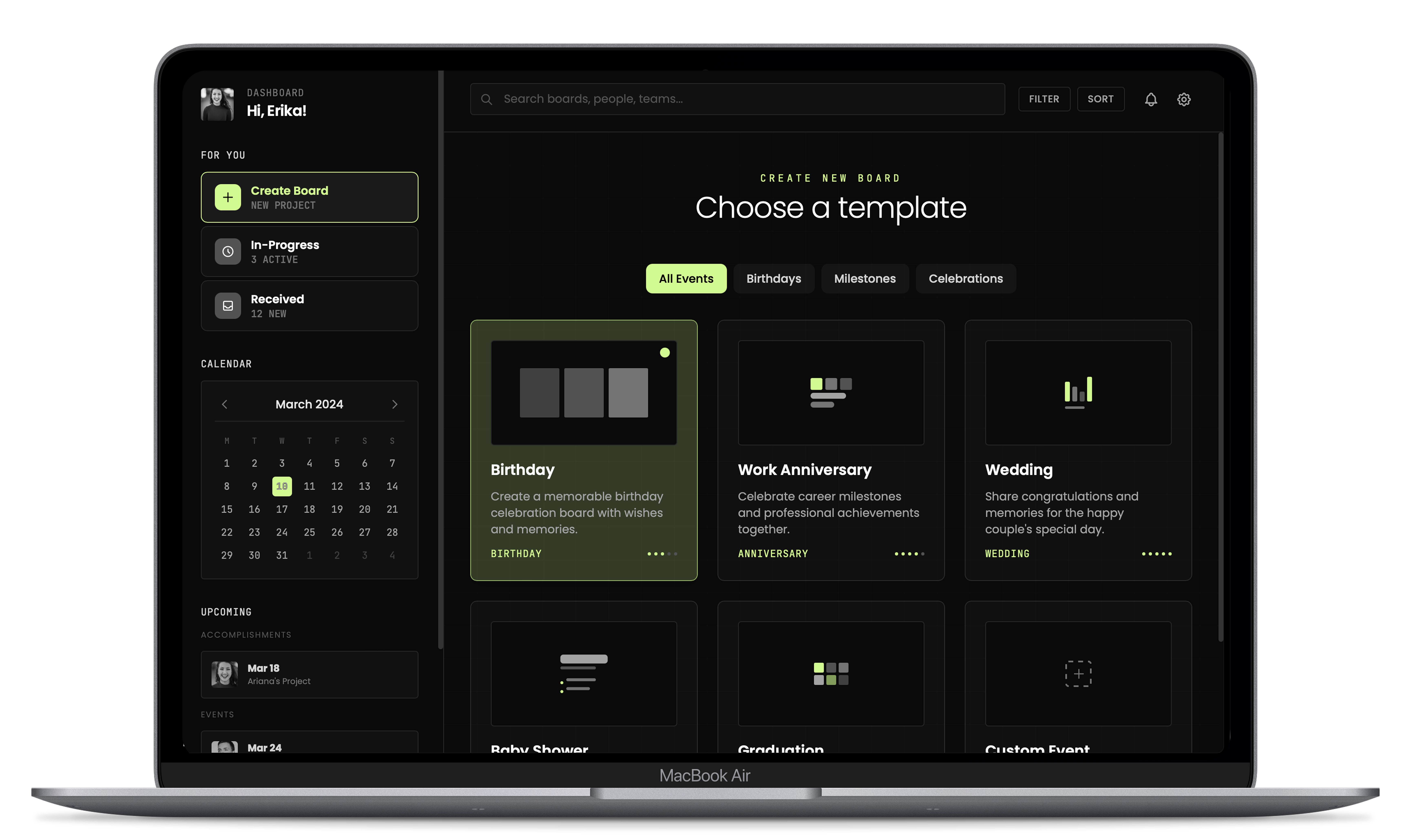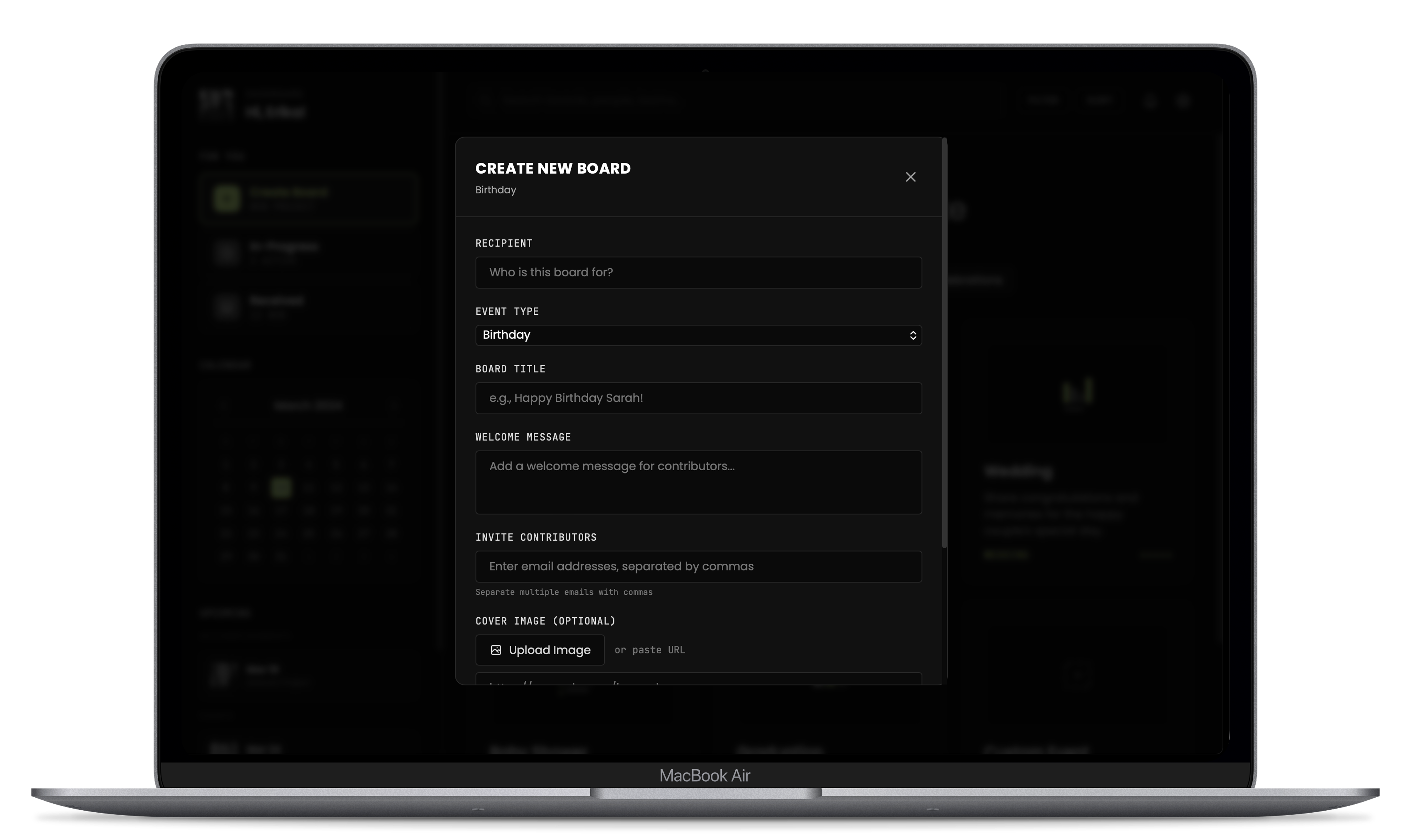Designing an Internal Communication Platform for Ford Employees to Coordinate and Celebrate Peer Achievements


UX Research: Competitive analysis, user interviews, affinity mapping, how-might-we statements, prioritization matrix
UX Design: Ideation, mid-fi wireframes, user tests, design system, hi-fi prototypes
Duration: 5 months, Jan '24 - May '24
Type: Product Design Apprenticeship
Team: Claire O’Malley, Damaris Adeniji, Erika Suin Shin, Isaac Cheung, Joe Maddux, Joel Archer, Kavni Shah, Mahi Tripatai, Prithvi Manjunatha, Tejasvi Bhagwatkar
Team Leads: Juliet Jimenez, Lukas Marinovic
The final outcome was to create a scalable design system and hi-fi interactive prototype of the platform prioritizing specific user needs, reduce reliance on external platforms, and minimalist design for development hand-off.
As a team within Ford, FordLabs collaborates with Ford businesses to address challenges by creating digital products using a lean and human-centered approach. The goal was to design a communication platform for the employees, a digital space to celebrate their peers' accomplishments and collaborate for events.
The primary objective was to design a platform addressing the diverse needs of different teams at Ford and the high costs associated with using existing services. The challenge was to design a minimalist platform that could accommodate the user needs of teams of varying sizes and use cases, allowing them to celebrate their peers' accomplishments, organize events, and replace the SaaS platform that was used by the employees.
The process and the interfaces documented in the case study show the final outcome handed off to the development team. The interactive prototype and the interfaces below are a result of further exploration of the solution space.

Interactive prototype exploring a different interface style for the same solution
The homepage features a two-column layout with a navigation bar. On the left with For You, Calendar, and Upcoming providing access to product's main functionalities.

The Posts Page shows a completed board for a employee's birthday. It supports various media types, including images, GIFs, audio, and text.

Users can search, browse, and select a pre-designed template from a list. Creators can choose contributors for targeted engagement and save the board as a draft or send it for contributions.

The team conducted an analysis to gain a deeper understanding of stakeholders’ work culture, user requirements, and identified critical features for the recognition platform tailored to the corporate environment. Our objective was to design a platform that meets the specific needs of Ford employees and aligns with their work culture within the corporate setting.
To understand the platform used at Ford, we interacted with KudoBoard, a paid SaaS B2B platform used by companies to recognize peers’ accomplishments where users can create and interact with digital boards to share messages. It is a virtual space for sharing positive sentiments and acknowledging achievements utilized by organizations like Ford. It facilitates celebrating colleagues by allowing users to create digital boards on which they post messages, photos, and other content. This helped us understand how FordLabs' employees celebrate their peers and how we could make the process user-friendly.

The objective of our competitive analysis was to explored most commonly used employee celebration platforms and assessed the competitor platforms for their functionalities, pricing, and board types and compared them to KudoBoard.

Based on our project objectives, we further researched Keka, AirSpeed, and Celebrations for Microsoft. This helped us identify features to include in our proposal, understand Kudoboard's significance in FordLabs' social culture, and guided our decision-making process.

We researched Keka’s celebratory platforms’ layout and event scheduling presentation. We noticed concisely organized presentations of overwhelming data points. The information is coherent but lacks a cohesive appearance.

Celebrations by Airspeed for Slack inspired our design approach. We identified efficient functionalities to improve our understanding of platform layouts and the benefits of design simplicity.

Our takeaway from Celebrations by Microsoft was layout organization that could informed our design decisions. This helped us identify commonly used functionalities and design considerations.
Takeaways
From our research, the three major functionalities we identified for our design proposal were as follows
Through secondary research, we conducted interviews with stakeholders to gain insights into their KudoBoard experience and identify their requirements for our design proposal. Post user interviews, we analyzed the interview data using an affinity map to identify themes, which were translated into “how might we” statements for further ideation. A prioritization matrix was developed to identify potential solutions and prioritize them for the initial proposal.
We interviewed 5 FordLabs employees to gain insights into KudoBoard interactions, and developed affinity maps to analyze the interview data. Our three main goals were:
Goal 1
Understand FordLabs employees' interactions with KudoBoard, the platform currently used at Ford.
Goal 2
Identify their needs for virtual celebrations and uncover pain points in their existing celebration process.
Goal 3
Gain insights into other communication and virtual meeting platforms like Zoom, Slack, and Webex used at Ford.


After conducting our interviews, the following are the themes identified after analyzing the data from affinity map of our interviews with the employees.
Multimedia Support
Including options to add multiple media types such as images, videos, GIFs, audios, voice notes, etc.
Social Structure
Entails the methods by which coworkers interact both during and outside of office hours.
User Interactions
Intuitive user flow throughout the platform to ensure smooth user interactions, and easy-to-navigate site mapping.
Weekly Updates
Notifications of upcoming events and communication to keep employees informed.
Workplace Gifting
Option to include gift cards in celebratory posts to show appreciation towards peers, and option enable anonymous gifting.
Communication
Messaging recognizing peer accomplishments through threaded comments.
Following the analysis of the affinity map, we crafted how might we statements and categorized them into prioritization matrix based on user needs.

Do Now
Do Next
Do Later
The how might we statements and categories from the prioritization matrix were translated into features mentioned below.
Post primary research, we gathered insights into users' interaction expectations to map users' journey. By organizing content into relevant categories and taking an iterative approach, we created an intuitive information architecture for the platform.

With information architecture of the site, we ideated the homepage, contribute page, and create new board page of the platform through sketching and iterative wireframing. Our focus was on structuring content layout and simplifying information for clarity and usability.


Design System for the Proposed Platform
The homepage layout has a two-column design with a side navigation bar divided into three subsections: For You, Calendar, and Upcoming. A search bar is integrated into the top section, reducing the number of sections on the page.

The following is prototype of Posts Page showing a completed board for a coworker’s birthday. It supports various media types, including images, GIFs, audio, and text, allowing users to choose their preferred format.

Users can browse pre-designed boards for events like birthdays, anniversaries, celebrations, and professional events to create new boards and select contributors for targeted engagement. Users can save boards as drafts or send them to receive contributions.


Based on multiple usability tests with FordLabs employees, our proposed design solution seamlessly integrates with the company's social culture while effectively addressing the diverse use cases required by the team. To further enhance the product's adoption at FordLabs, the following future considerations have been identified: